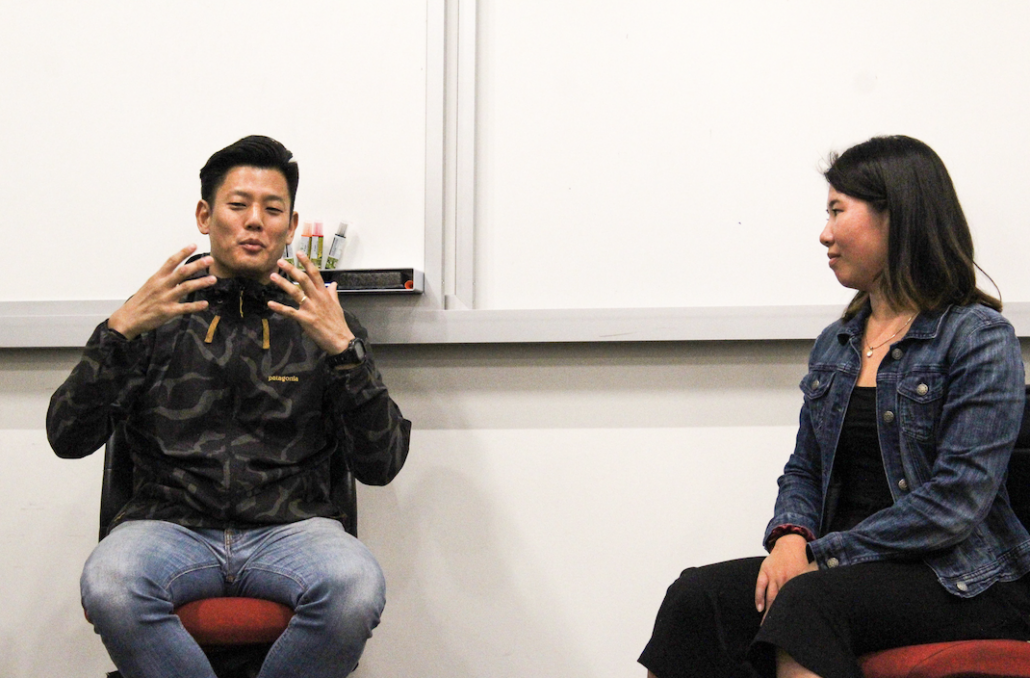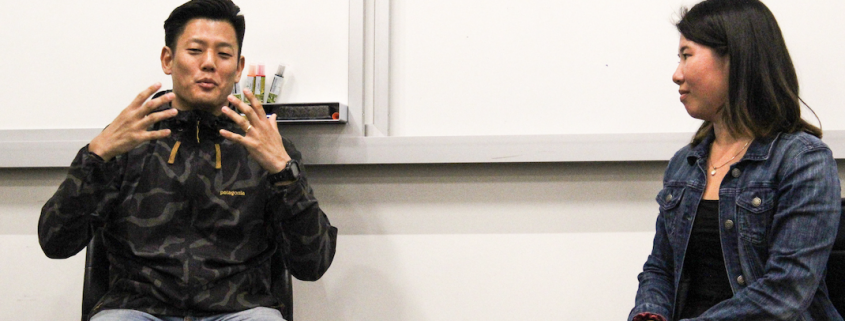Fireside Chat hosts a conversation with Cafe Dulce founder

On any given day at USC Village, dozens of people stand patiently outside of Dulce waiting for their caffeine fix. Dulce’s popularity — both at USC and in Los Angeles — can be attributed to its emphasis on hospitality. In an event organized by student entrepreneurship organization Spark SC, Dulce founder and owner James Choi shared how he came to be the mastermind behind one of the most popular local cafes.
Choi, who graduated from USC in 2005 with a degree in accounting, worked for the multinational professional services firm Ernst & Young. He then opened up Teuscher Swiss Chocolates in Palo Alto with his mother, eventually creating the first Dulce in Little Tokyo in 2011.
Choi said that at the time, his mother was in remission from ovarian cancer, and neither his mother nor he had any prior experience in the baking industry. Although his mother had a business partner, Choi said the partner dropped out of the project three weeks before opening day, prompting himself to embark on the business venture with his mother.
“So I put in my two weeks, left my job for the last time and I’ve been at Dulce since 2010 when I came on board,” Choi said.
Choi said the reason for Dulce’s popularity is its emphasis on hospitality, as the franchise aims to bring about positive change in the community.
“We’re not here serving pastries and drinks and food — we serve people,” Choi said. “At the end of the day, the pastries that we make, the drinks that we slave over, the latte art that we pour that we’re proud of … that’s only as important as the person that we’re serving them to.”
Choi said that he is primarily motivated by the belief that his hard work will pay off. Along with the support of his family, this belief aided him through the early days of running the cafe.
“The only thing you can do is just put your head down and work,” Choi said. “And I [couldn’t] afford to hire people, so I … physically [had to] do everything that I [could]. So literally from 7 a.m. to 11 p.m., everyday for almost two years.”
When he was starting his first cafe in Little Tokyo, Choi said he found that engaging with the surrounding community is a key aspect of running a business.
“Because we gave to the community, even though we didn’t have much to give, they were the ones that patronized us during those dark times, during 2011 and 2012 when it was really slow,” Choi said.
Spark SC board member Ankur Rastogi, a senior majoring in biomedical engineering and computer science, asked Choi how he approaches his staff when they make mistakes. Choi said he tries to coach workers rather than punish them.
“It’s not about the person … It’s not ‘you didn’t do this, or you did this’ … It’s more like the behavior you choose,” Choi said.
Alicia Msei, a graduate student at the Marshall School of Business, said the event helped her realize the importance of incorporating hospitality in businesses.
“I think the most important lessons I’ve learned from the speech is that it’s interesting to know that hospitality is the most important thing,” Msei said. “It’s not about the food, but about people and to have passion in the things you do.”

